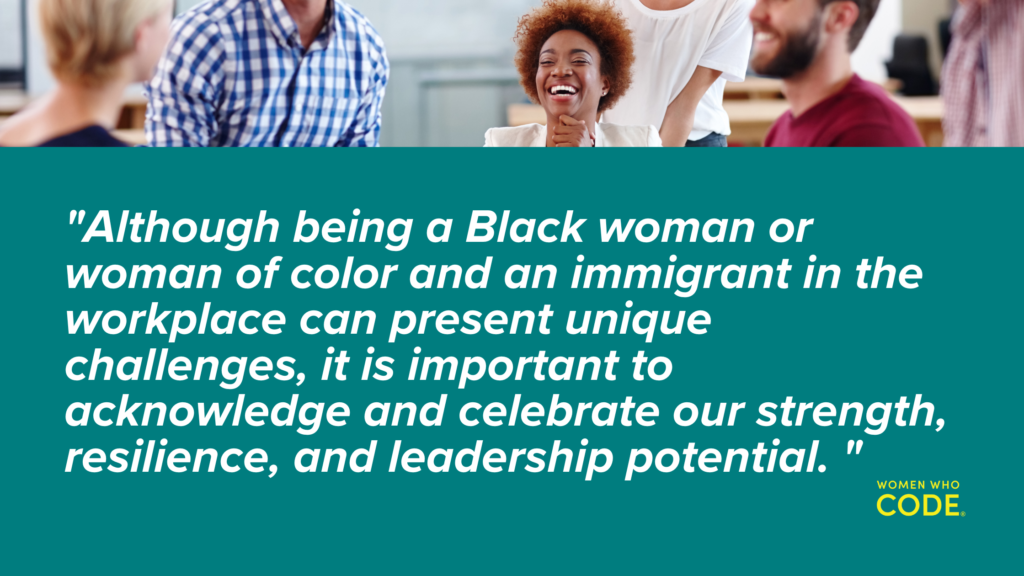Excelling as a Black Woman in Leadership
Written by Michele Aupont

When I was a little girl, we migrated to the United States due to political issues in my home country, Haiti. I came to this new country and was constantly reminded that I didn’t belong. Now, as an adult, I have overcome much misfortune but still find myself fighting to navigate and stay afloat in the corporate world, even as I reclaim my authentic identity – an Afro-Latina who speaks four languages, graduated valedictorian, and is passionate about analytics.
As a Black woman and immigrant in the workplace, I have faced many challenges. I have been discriminated against based on my race, gender, culture, and immigration status. I’ve hidden my true self and have still had to work to prove myself to be an asset worthy of promotion and pay equity. I’ve been subjected to microaggressions and harassment, yet my story isn’t much different from most Black women and women of color. Black women are often stereotyped as aggressive, unqualified, and unfit for leadership roles, even though we are more likely to be overdeveloped and underinvested in. These stereotypes often prevent us from being considered or promoted to leadership positions. Forbes reports that only 4.4% of Black women are in management positions, and only 1.4% hold C-suite positions, despite being 7.4% of the U.S. population. Labelism and other isms often prevent us from getting a seat at the table and limit our ability to excel in the workplace.

Despite many obstacles and like many Black women and women of color in leadership, I have persevered and want to share my advice for overcoming discrimination to excel as a leader in your career.
- Show Confidence – Believing in your abilities and the power of your voice is essential. Never be afraid to speak up in meetings, share your ideas, and advocate for yourself. The journey of self-advocacy and asserting yourself in the workplace can be challenging, but it is an important step towards equality and recognition. It is about breaking through the barriers that have been historically placed, dismantling stereotypes, and creating a space where everyone’s voice is heard and valued.
Speaking up may sometimes involve stepping on some toes. It is important to recognize that not everyone may be receptive or welcoming of your ideas, especially when they challenge existing norms or power dynamics. However, staying steadfast in your convictions and navigating through any resistance or pushback with grace and professionalism is crucial.
- Build Relationships – Relationships with other Black women and allies in the workplace are critical. When we come together, we become pillars for each other. Within these relationships, opportunities for both mentorship and sponsorship flourish helping to level the professional playing field.
- Embrace Visibility – Visibility is critical to advocating for and promoting yourself. Do not be afraid to discuss your accomplishments and share your stories. Seek out mentorship opportunities and support other women who are on similar journeys. It is understandable to feel hesitant or even afraid to discuss your accomplishments and share your stories openly. However, overcoming this fear and embracing the power of self-promotion is imperative.
Although being a Black woman or woman of color and an immigrant in the workplace can present unique challenges, it is important to acknowledge and celebrate our strength, resilience, and leadership potential. Our identities should not be seen as limitations but as sources of inspiration and motivation. Simply understanding who we are makes all the background noise insignificant. We can continue to break barriers and pave the way for a more inclusive and equal future.